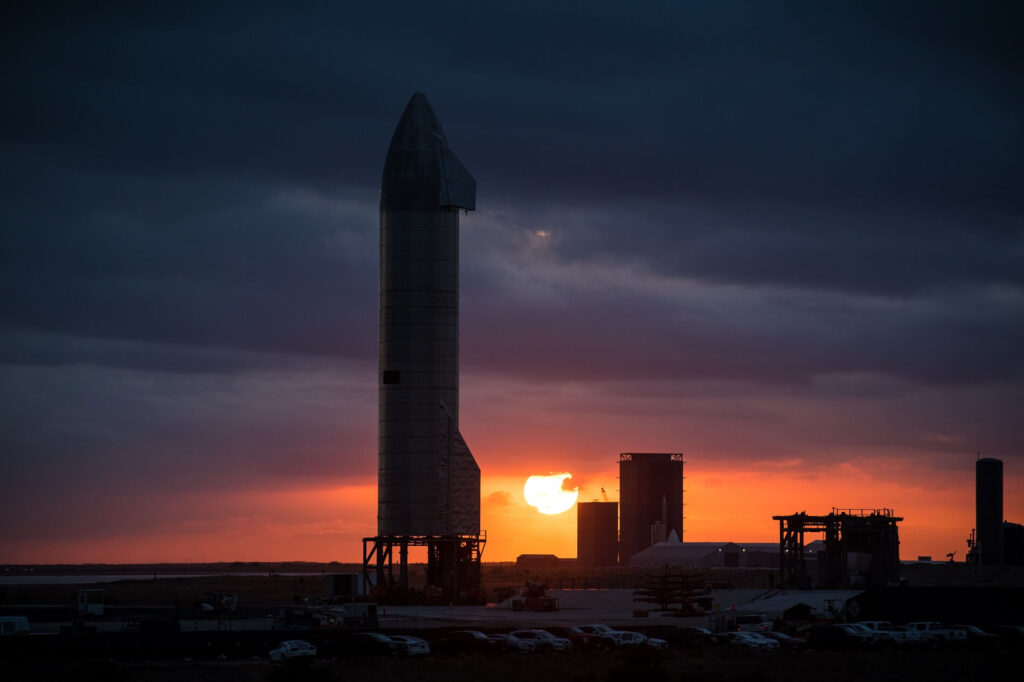A second prototype of the Starship rocket, produced by SpaceX, crashed on landing during a test flight from the coast of Texas, the United States, on February 2, 2021. Another prototype had met the same fate in December 2020.
The Starship prototype “SN9” managed to take off without any issues and climbed, as planned, to more than 10 kilometers (6 miles) in altitude. The spacecraft gradually shut down its engines and performed a series of horizontal maneuvers. But as it descended and attempted to rotate back vertically, the prototype crashed violently on the launchpad, triggering a fiery explosion.
No explanation has yet been provided for the failed landing. However, it appeared that much like last time, at least one of the three Raptor engines could have failed to properly ignite. “We demonstrated the ability to transition the engines to the landing propellant tanks,” commented SpaceX engineer John Insprucker on the company’s live broadcast. “The subsonic reentry looked very good and stable like we saw again last December. And again, we’ve just got to work on that landing a little bit.”
The objective is for SpaceX to develop a vehicle capable of coming and going into space, hence the needed capability to take off and land vertically. The test flights of the Starship take place in Boca Chica, southern Texas. The area is deserted enough to insure an accident or explosion does not cause damage or casualties.
But the new setback should not discourage the company, whose prototype “SN10” is already waiting on the launchpad for a chance to redeem its predecessors.

